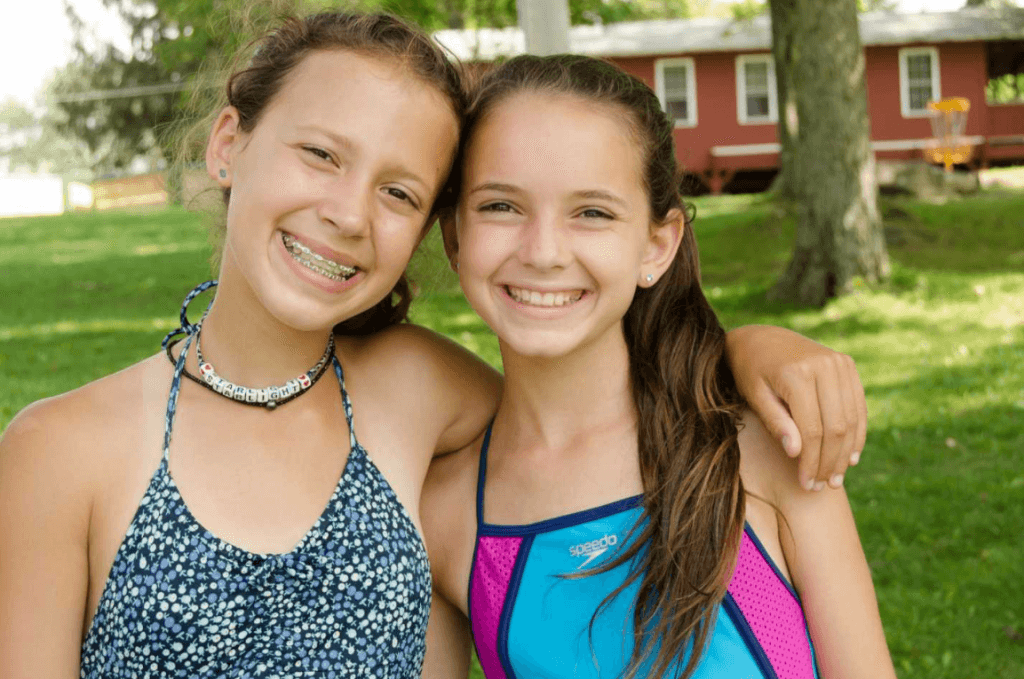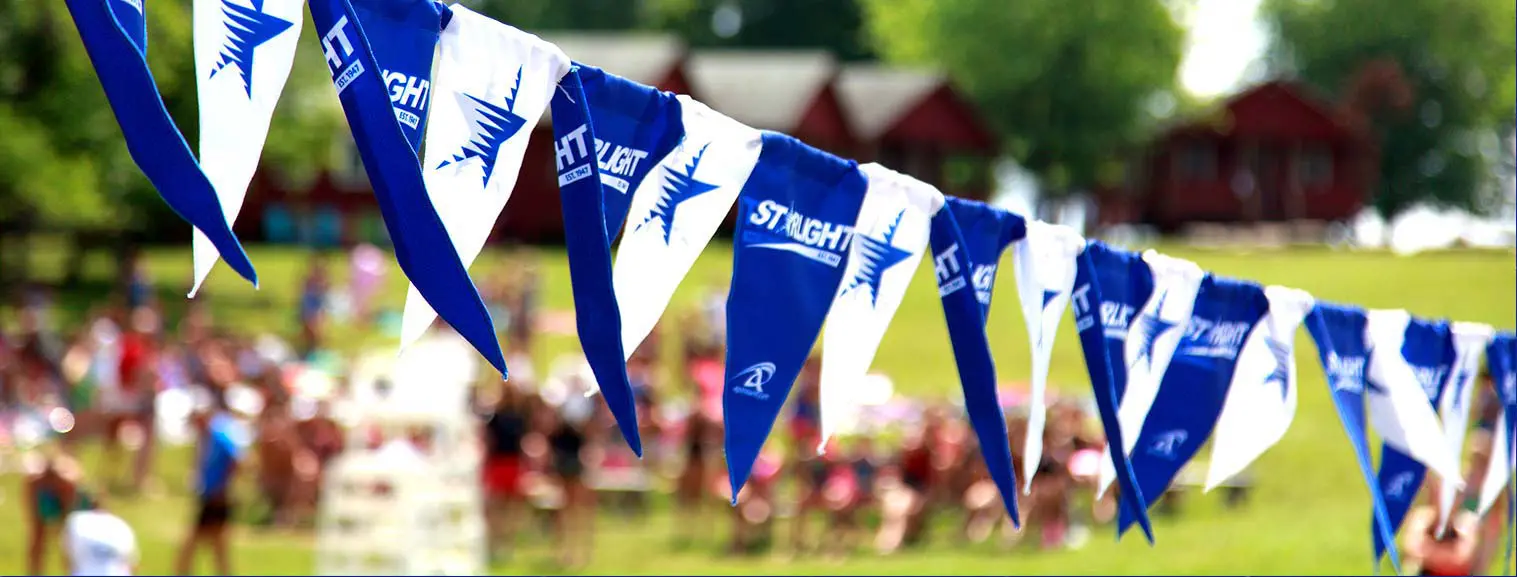 Back in 1988, the book Everything I Need to Know, I Learned in Kindergarten was written by Robert Fulghum. However true the points the author makes may be, it is arguable that those who go to summer camp would feel otherwise. Although summer camp is packed full of fun times, arts and crafts projects, and songs around a campfire, it is also an experience rich in life lessons that carry on far into adulthood. Children who are still of camping age probably think that a crazy concept. To them summer is simply two months filled with sports, activities, and bonding time with their friends. But those who are past the age of those simple days of fun in the sun feel certain they have taken far more from their summers spent at camp.
Back in 1988, the book Everything I Need to Know, I Learned in Kindergarten was written by Robert Fulghum. However true the points the author makes may be, it is arguable that those who go to summer camp would feel otherwise. Although summer camp is packed full of fun times, arts and crafts projects, and songs around a campfire, it is also an experience rich in life lessons that carry on far into adulthood. Children who are still of camping age probably think that a crazy concept. To them summer is simply two months filled with sports, activities, and bonding time with their friends. But those who are past the age of those simple days of fun in the sun feel certain they have taken far more from their summers spent at camp.
The years a child spends away at summer camp are the years when development is at an all time high. It is the age when a children 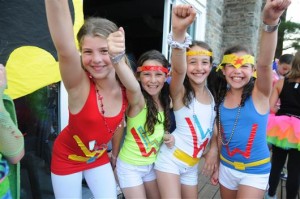 build the foundation of their personalities, life attitudes, and personal relationships with others. The most basic lesson hidden in the experience of going to summer camp is the independence found in leaving the familiarity of family and friends at home. Going off to a new place without mom or dad around to help manage time and personal space is a giant step in the right direction for learning personal responsibility. In joining a group of kids their own age as a unit, the children learn to accept compromise, share, and respect others in a fun environment. As they step into the bunk, they also learn the roles of new authority figures in their counselors, instructors, and camp administration.
build the foundation of their personalities, life attitudes, and personal relationships with others. The most basic lesson hidden in the experience of going to summer camp is the independence found in leaving the familiarity of family and friends at home. Going off to a new place without mom or dad around to help manage time and personal space is a giant step in the right direction for learning personal responsibility. In joining a group of kids their own age as a unit, the children learn to accept compromise, share, and respect others in a fun environment. As they step into the bunk, they also learn the roles of new authority figures in their counselors, instructors, and camp administration.
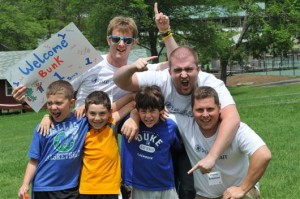 The relationships founded between counselor and camper are bonds that are remembered for many years past the days spent in the bunks together. These friendships teach respect and acceptance of the new adult assuming the position of summer caretaker for the child. It is a gentle transition, as the role of a counselor is generally focused on the child having a great time but also ensuring the child is safe, fair, and well-taken care of. Children learn that authority figures are not to be seen solely as someone who tells them what to do, but as someone who genuinely cares about their welfare, progress, and interactions with those around them. Camps enact policies such as group clean-ups and team building exercises utilize the necessary time spent doing chores and outdoor activities to become educational experiences for each child. The concepts of personal responsibility and teamwork become second nature at camp, and they are indispensable as the child moves on to college and adulthood.
The relationships founded between counselor and camper are bonds that are remembered for many years past the days spent in the bunks together. These friendships teach respect and acceptance of the new adult assuming the position of summer caretaker for the child. It is a gentle transition, as the role of a counselor is generally focused on the child having a great time but also ensuring the child is safe, fair, and well-taken care of. Children learn that authority figures are not to be seen solely as someone who tells them what to do, but as someone who genuinely cares about their welfare, progress, and interactions with those around them. Camps enact policies such as group clean-ups and team building exercises utilize the necessary time spent doing chores and outdoor activities to become educational experiences for each child. The concepts of personal responsibility and teamwork become second nature at camp, and they are indispensable as the child moves on to college and adulthood.
Another indispensable quality learned through staff member relationships with campers is the characteristics of “coach-ability”; the 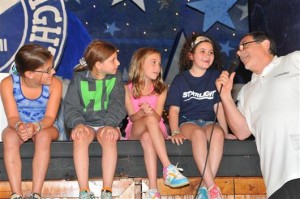 acceptance of instruction and constructive criticism. Every summer, children are excited to spend time on the fields and courts during athletic activity periods. While they are learning the proper way to shoot a lay-up, they are also engaging in a fun, educational lesson in observing and learning from others. While they obviously enjoy one area more than others, they are expected to both try and improve in the all activities. They spend the day with others in their bunks or divisions who have different interests and strengths and, through those performances, are able to see that everyone has their own niche and range of capabilities. This builds the early cornerstone of mutual respect amongst others and the idea that they can learn something from another person, even if that subject matter does not necessarily spark their full interest. The camp implementing full participation expectations from every child also teaches them the idea that they should always play a part in the activity and do their best at the task at hand.
acceptance of instruction and constructive criticism. Every summer, children are excited to spend time on the fields and courts during athletic activity periods. While they are learning the proper way to shoot a lay-up, they are also engaging in a fun, educational lesson in observing and learning from others. While they obviously enjoy one area more than others, they are expected to both try and improve in the all activities. They spend the day with others in their bunks or divisions who have different interests and strengths and, through those performances, are able to see that everyone has their own niche and range of capabilities. This builds the early cornerstone of mutual respect amongst others and the idea that they can learn something from another person, even if that subject matter does not necessarily spark their full interest. The camp implementing full participation expectations from every child also teaches them the idea that they should always play a part in the activity and do their best at the task at hand.
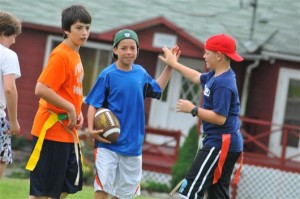 The final lesson most prevalent in a child’s growth in camping is the sense of pride that is found in being part of a group and engaging in its traditions. For years to come, former campers will reflect on campfires, evening activities, sing-alongs, and the everyday routines of their camp days as fond memories spent at a place where they found their summer home. There is a spirit of pride and camaraderie when they see a person from their camp get into a highly renowned university, publish their first book, or take the field as a collegiate or professional athlete. A shared sense of accomplishment for that person shows the strength of the bonds found in camp friendships and the acknowledgement of others’ personal victories. Those in their post-camping days find that through painting their faces, raising their voices in a round, and taking roles on as senior campers stick with them in later years as a sense of unity amongst a group of people. By taking part in something that stood before them and has continued on without them, they carry with them the role they played in a part of the history of that place. The good feelings and happiness found both in the moment and in years to come instills in a camper the value of relationships with others and taking pride in an establishment. This further develops loyalty and commitment in other organizations ranging from teams, sororities or fraternities, community service projects, and even in the professional corporations they find themselves in later in life.
The final lesson most prevalent in a child’s growth in camping is the sense of pride that is found in being part of a group and engaging in its traditions. For years to come, former campers will reflect on campfires, evening activities, sing-alongs, and the everyday routines of their camp days as fond memories spent at a place where they found their summer home. There is a spirit of pride and camaraderie when they see a person from their camp get into a highly renowned university, publish their first book, or take the field as a collegiate or professional athlete. A shared sense of accomplishment for that person shows the strength of the bonds found in camp friendships and the acknowledgement of others’ personal victories. Those in their post-camping days find that through painting their faces, raising their voices in a round, and taking roles on as senior campers stick with them in later years as a sense of unity amongst a group of people. By taking part in something that stood before them and has continued on without them, they carry with them the role they played in a part of the history of that place. The good feelings and happiness found both in the moment and in years to come instills in a camper the value of relationships with others and taking pride in an establishment. This further develops loyalty and commitment in other organizations ranging from teams, sororities or fraternities, community service projects, and even in the professional corporations they find themselves in later in life.
In conclusion, it may seem that the issues at hand make a simple summer spent with friends too serious. However, those who look back on their experiences in camping with fond memories know the things they learned at camp are still with them. The relationships built often outlast those of neighborhood and schoolyard friends, and in them they find some of their greatest confidantes and oldest friends. The tools gained through taking part in summers at camp haven proven useful in the obstacles faced years later. Therefore, it is quite obvious to those who at some point called themselves a camper that they truly learned everything they needed to know at camp!
